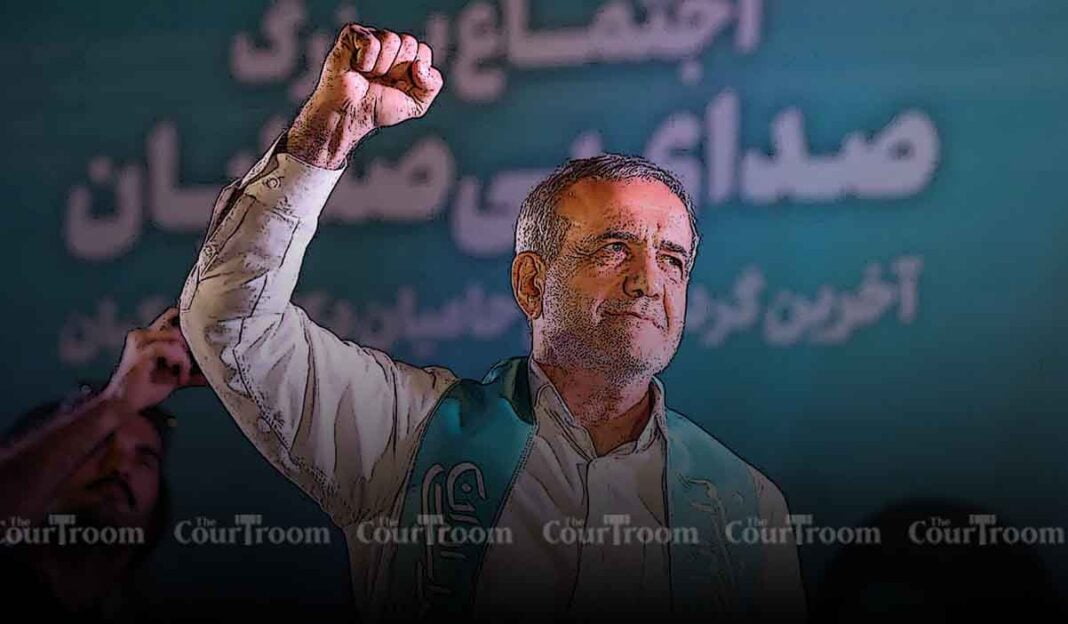Reformist candidate Masoud Pezeshkian has won the presidential elections in Iran, as reported by CNN citing Press TV
Out of 30.5 million votes counted in Friday’s runoff, Pezeshkian received over 16.3 million votes, while his ultraconservative rival Saeed Jalili garnered more than 13.5 million votes.
Voter Turnout and Election Context
The election headquarters under the auspices of the interior ministry reported a voter turnout of 49.8%. Pezeshkian secured his victory in a second round of voting after leading in the first round, which saw the lowest turnout for a presidential election since Iran’s establishment in 1979.
Challenges Ahead
Pezeshkian takes office in a nation grappling with international isolation, internal discontent, a struggling economy, and the potential for conflict with Israel. Snap elections were held following the death of President Ebrahim Raisi in a helicopter crash along with Foreign Minister Hossein Amir-Abdollahian and other officials in Iran’s remote northwest in May.
Reformist Vision and Electoral Challenges
As the only reformist candidate allowed to run, Pezeshkian advocates for dialogue with Iran’s adversaries, particularly regarding the nuclear program, as a means to address domestic issues. In a recent debate, he emphasized the need to resolve Iran’s problems through international engagement.
Presidential Powers and Reformist Background
While the President of Iran holds some powers, the ultimate authority lies with the Supreme Leader. Pezeshkian, a former health minister under reformist president Mohammad Khatami, is a heart surgeon and lawmaker known for opposing the 2009 crackdown on pro-democracy protests and the 2022 violence by the morality police following Mahsa Amini’s death.
Stance on Morality Police and Reform
Pezeshkian publicly criticized the use of force to implement religious practices during the 2022 protests. He stressed collective accountability rather than targeting individuals, calling for a more compassionate approach.
Personal Background and Political Journey
Pezeshkian, 69, lost his wife and a child in a car crash in 1994 and has since dedicated much of his life to politics. He has previously run for president in 2013 and 2021. Coming from an ethnically mixed family, with an Azeri father and Kurdish mother, he is seen as a unifying figure for minorities in Iran despite facing xenophobic attacks.
Potential Impact on Foreign Policy and Domestic Reforms
Experts suggest that Pezeshkian’s moderate stance could facilitate talks between Iran and Western nations and potentially lead to social changes. However, significant policy shifts are not guaranteed due to the limitations of presidential powers in Iran.
Escalating Tensions with Israel
Pezeshkian assumes the presidency amid escalating tensions with Israel and its western allies, intensified by the ongoing conflict in Gaza and Iran’s nuclear advancements. Recent exchanges of fire between Iran and Israel and threats of broader conflict underscore the volatile regional dynamics.
Outlook on Iran-Israel Relations
Pezeshkian is not expected to alter Iran’s trajectory regarding Israel. The ongoing hostilities and threats from both sides suggest that the new president will have to navigate a complex and dangerous geopolitical landscape.
Expert Opinions on Pezeshkian’s Presidency
Sanam Vakil of the Chatham House think tank notes that while Pezeshkian may strive to create a less repressive environment, the extent of his impact remains uncertain due to the entrenched power structures in Iran.
(With inputs from ANI)
Share your news, articles, deals, columns, or press releases with us! Click the link to submit and join our platform today.


